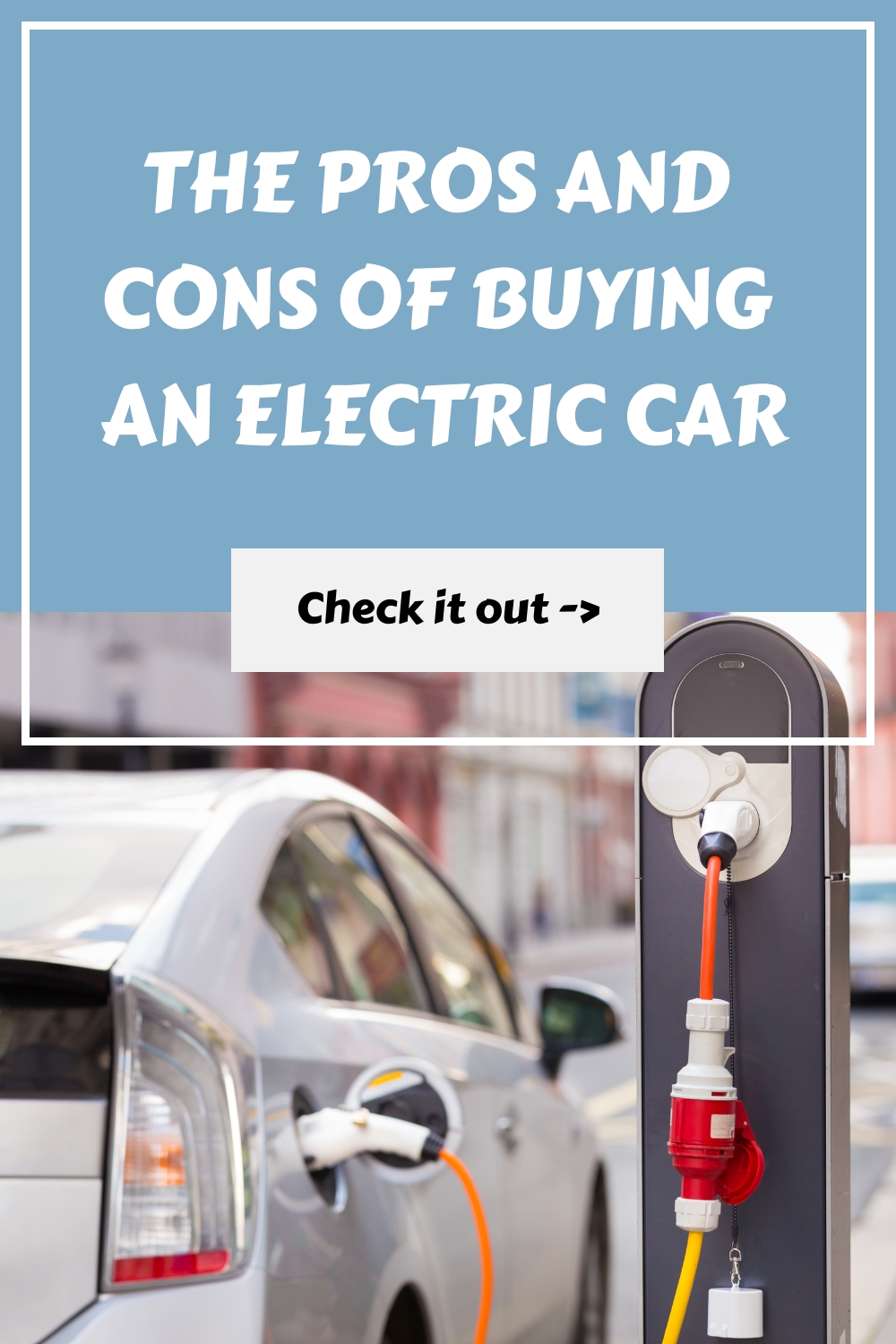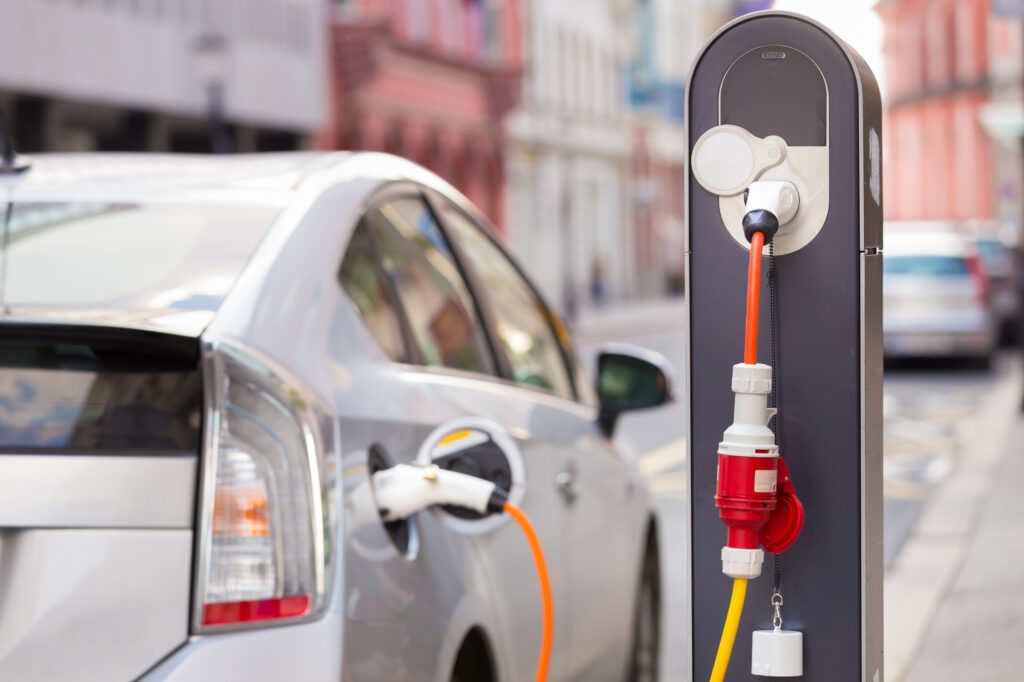
The electric vehicle (EV) revolution is well underway, with more and more people considering the switch from traditional gasoline-powered cars to electric alternatives. The environmental benefits, lower operating costs, and cutting-edge technology make electric cars an attractive option for many. However, it’s essential to weigh the pros and cons carefully, taking your financial situation into account. In this article, we’ll discuss the advantages and disadvantages of buying an electric car and explore the salary range that is most conducive to making the transition.
Contents
Pros of Buying an Electric Car
1. Environmental Benefits
Electric cars produce zero tailpipe emissions, reducing air pollution and greenhouse gas emissions. This makes them an environmentally responsible choice, contributing to a cleaner planet and potentially reducing your carbon footprint.
2. Lower Operating Costs
Electric cars have lower fuel and maintenance costs compared to their gasoline counterparts. Electricity is generally cheaper than gasoline, and EVs have fewer moving parts, resulting in reduced maintenance expenses.
3. Energy Efficiency
Electric motors are highly efficient, converting a more significant portion of energy from their power source into actual movement. This translates to better mileage for your money.
4. Incentives and Tax Credits
Many governments offer financial incentives and tax credits to encourage the adoption of electric vehicles. These can significantly offset the initial purchase price.
5. Quiet and Smooth Ride
Electric cars are known for their quiet and smooth ride, contributing to a more enjoyable driving experience.
Cons of Buying an Electric Car
1. Higher Initial Cost
Electric cars typically have a higher upfront purchase price compared to traditional vehicles. This can be a significant barrier for some consumers.
2. Limited Range
While EV technology is improving, electric cars still have limited driving ranges compared to gasoline-powered vehicles. Longer road trips may require more planning and charging stops.
3. Charging Infrastructure
While charging infrastructure is growing rapidly, it may not be as convenient as refueling at a gas station, especially in rural or less developed areas.
4. Charging Time
Charging an electric car takes longer than refueling with gasoline. Although fast-charging options are available, they are not as widespread as standard charging stations.
5. Depreciation Concerns
Electric cars may depreciate faster than gasoline cars due to rapid advancements in battery technology. This can affect resale value.
Salary Considerations for Going Electric
The decision to go electric isn’t solely about your salary, but your income level does play a role in determining whether it’s a feasible choice. Here are some considerations:
Higher Income Levels
If you have a higher income, you may be more likely to afford the higher upfront cost of an electric car. Additionally, you may have the financial flexibility to install a home charging station or access a wider range of electric car models with advanced features.
Middle-Income Range
Many people in the middle-income bracket can comfortably consider electric cars, especially with government incentives and financing options. It’s important to calculate potential savings over the life of the vehicle to determine if it makes financial sense.
Lower Income Levels
For individuals with lower incomes, the higher initial cost of electric vehicles may be a significant hurdle. However, it’s essential to consider long-term savings on fuel and maintenance, as well as potential government incentives.
Electric Car FAQs
Electric cars are rapidly gaining popularity as a sustainable and efficient mode of transportation, but as with any emerging technology, they come with a host of questions and uncertainties.
What is the best electric car for the money?
The “best” electric car for the money can vary depending on your specific needs, preferences, and budget. Several electric car models offer excellent value for different reasons. Here are a few electric cars across various price ranges that are often considered good value for their respective segments:
- Tesla Model 3: The Tesla Model 3 is frequently praised for its performance, range, and advanced technology. It offers a compelling balance between price and features, making it a popular choice in the mid-range electric car market.
- Chevrolet Bolt EV: The Chevrolet Bolt EV provides an affordable option with a relatively long electric range. It’s known for its spacious interior and comfortable ride.
- Hyundai Kona Electric: This electric SUV offers a competitive price point, impressive range, and a comfortable interior. It’s often recognized as a great value in the electric SUV category.
- Nissan Leaf: The Nissan Leaf is one of the most affordable electric cars on the market. It’s well-suited for urban commuting and shorter trips, making it an economical choice for many.
- Kia Niro EV: The Kia Niro EV combines a practical, spacious design with a reasonable price and respectable range, making it a good value in the electric crossover segment.
- Ford Mustang Mach-E: This electric SUV offers a blend of performance and style, with various trim levels to fit different budgets. It’s a compelling option for those who want a more sporty electric vehicle.
It’s essential to consider your specific requirements when determining the best electric car for your money. Factors like range, size, features, and charging infrastructure availability in your area will influence your decision. Additionally, government incentives and rebates can also impact the overall value of an electric car purchase, so be sure to research those in your region.
How much does it cost to charge an electric car at a charging station?
The cost to charge an electric car at a charging station can vary widely depending on several factors:
- Charging Station Type: Charging stations come in different types, including Level 1, Level 2, and DC fast chargers. Level 1 chargers (120V) are slower and typically cheaper, while Level 2 chargers (240V) are faster but may cost more per kilowatt-hour (kWh). DC fast chargers provide rapid charging but can be the most expensive option.
- Location: Charging rates can vary by location and provider. Charging stations in urban areas or along major highways might charge more due to demand or higher infrastructure costs.
- Charging Network: Some charging networks offer membership plans or loyalty programs that can provide reduced charging costs for members.
- Time of Use: Some charging stations and utilities offer time-of-use pricing, where electricity costs more during peak hours and less during off-peak hours. Charging during off-peak times can result in lower costs.
- Electricity Rates: Local electricity rates can significantly impact the cost to charge your EV. Rates vary by region and utility provider.
According Mach1Services, the average cost of charging an electric vehicle falls within the range of $0.30 to $0.60 per kWh. Consequently, a compact car may require approximately $11.50 to $23 for a complete charge, while a larger or long-range vehicle could incur costs ranging from $22.50 to $45 for a full charge.
Keep in mind that electric car charging costs are typically lower than the cost of gasoline for equivalent mileage, and some EV owners benefit from reduced or free charging through various promotions or incentives.
Please note that charging costs can change over time due to fluctuations in electricity prices and changes in pricing policies by charging station operators. It’s a good idea to check the current rates at the charging stations you plan to use and consider any membership or subscription plans that may offer discounts.
What is the easiest car to convert to electric?
The easiest car to convert to electric is typically a lightweight and simple vehicle with minimal complex systems. Generally, older cars without advanced electronics, manual transmissions, and rear-wheel drive tend to be the most straightforward candidates for electric conversions. Here are some factors that make a car easier to convert:
- Manual Transmission: Vehicles with manual transmissions are generally easier to convert than those with automatic transmissions. Electric motors can be more easily coupled with manual gearboxes.
- Rear-Wheel Drive: Rear-wheel-drive vehicles often have more straightforward drivetrain configurations for electric conversions, making them simpler to adapt.
- Simplicity: Cars with fewer electronic systems and modern features are easier to convert. Older, mechanically simple vehicles are often preferred for conversion projects.
- Space for Batteries: Cars with ample space for battery placement are advantageous because batteries can be heavy and require careful positioning for weight distribution.
- Availability of Conversion Kits: Some popular models have conversion kits available that provide a pre-engineered solution, simplifying the process.
- Support and Documentation: Cars for which there is abundant documentation and support within the electric vehicle conversion community can be less challenging for first-time converters.
That said, it’s important to remember that converting a car to electric is a complex and often time-consuming project that requires a good understanding of automotive mechanics and electrical systems. It’s not a task for beginners, and professional assistance is often recommended, especially for those without prior experience in EV conversions. Additionally, the availability of conversion kits, components, and expertise in your area may also influence the choice of a suitable vehicle for conversion.
How much does it cost to convert a car to electric?
The cost to convert a car to electric can vary widely depending on factors such as the vehicle’s make and model, the type of electric conversion kit used, and whether you perform the conversion yourself or hire professionals. On average, a basic electric conversion can start at around $5,000 to $10,000, but for more complex conversions or high-performance electric vehicles, the cost can exceed $20,000 or more. It’s crucial to research thoroughly and obtain quotes from experts to determine the precise cost for your specific conversion project.
Is car insurance cheaper on an electric car?
Car insurance rates for electric cars can vary depending on several factors, and it’s not always guaranteed that insurance for electric cars will be cheaper than their gasoline-powered counterparts. Here are some factors to consider:
1. Vehicle Model: The specific make and model of your electric car will impact your insurance rates. Some electric cars may have higher repair or replacement costs due to specialized components or materials, which can affect insurance premiums.
2. Cost of the Vehicle: Electric cars are often more expensive to purchase than traditional gasoline-powered cars. Since insurance rates are partially based on the vehicle’s value, a more expensive electric car may result in higher premiums.
3. Safety Features: Many electric cars come equipped with advanced safety features and autonomous driving capabilities, which can potentially lead to lower insurance rates if insurers consider these features to reduce the risk of accidents.
4. Maintenance Costs: Electric cars generally have lower maintenance costs than traditional vehicles, which could positively influence insurance rates since there may be fewer claims for routine maintenance issues.
5. Insurance Provider: Different insurance companies have varying approaches to underwriting electric car policies. Some may offer discounts or specialized coverage for EVs, while others may not have specific policies in place.
6. Driver Profile: Your personal driving history, location, age, and other factors that typically influence insurance rates will still play a significant role in determining your premiums.
It’s important to shop around and obtain insurance quotes from multiple providers, such as Geico and State Farm, to find the best rate for your specific electric car and individual circumstances. Some insurance companies may offer discounts or incentives for electric car owners to encourage the adoption of green vehicles. Additionally, check with your insurer about any available discounts or incentives for electric car ownership, as these can vary between providers.
Can you lease an electric car?
Yes, you can lease an electric car just like you can lease a traditional gasoline-powered vehicle. Leasing an electric car offers several advantages, including lower upfront costs, the opportunity to drive a newer model with the latest technology, and the potential to benefit from tax incentives and rebates. Here’s how electric car leasing works:
1. Lower Monthly Payments: When you lease an electric car, you typically make lower monthly lease payments compared to financing the purchase of the same vehicle. This can make electric cars more accessible to a broader range of consumers.
2. Tax Incentives: Depending on your location, you may be eligible for federal or state tax incentives and rebates for leasing an electric car, which can further reduce your monthly costs.
3. Newer Models: Leasing allows you to drive a newer electric car with the latest features and technology. Since technology in the electric vehicle industry is evolving rapidly, this can be appealing to those who want to stay at the forefront of advancements.
4. Maintenance Coverage: Many electric car leases include maintenance packages, which can cover routine service and repairs, making it more convenient and potentially reducing out-of-pocket costs.
5. Mileage Limits: Leases typically come with mileage limits, and exceeding these limits may incur additional charges. It’s important to consider your driving habits and choose a lease agreement with an appropriate mileage allowance.
6. End-of-Lease Options: At the end of the lease term, you usually have several options, including returning the car and leasing a new one, purchasing the car at a predetermined price (residual value), or extending the lease for a specified period.
Leasing an electric car can be an attractive option, especially for individuals who want to experience electric driving without committing to the long-term ownership of a vehicle. However, it’s essential to carefully review the terms and conditions of the lease agreement, including mileage limits, maintenance responsibilities, and any fees associated with excess wear and tear, to make an informed decision that aligns with your needs and budget.
Conclusion
Buying an electric car can be a smart decision, but it’s crucial to weigh the pros and cons while taking your income level into account. While higher income can make the transition more accessible, lower-income individuals may still find electric cars financially viable with incentives and long-term savings. Ultimately, the decision to go electric should align with your budget, driving habits, and environmental values. As technology advances and charging infrastructure grows, electric vehicles are likely to become an increasingly practical choice for a broader range of consumers.
Featured Image Credit: DepositPhotos.com





